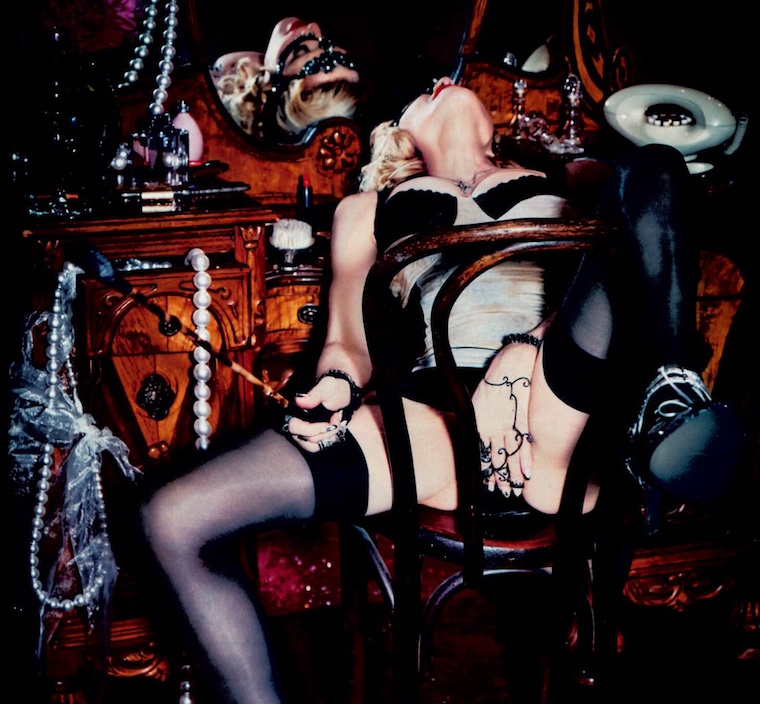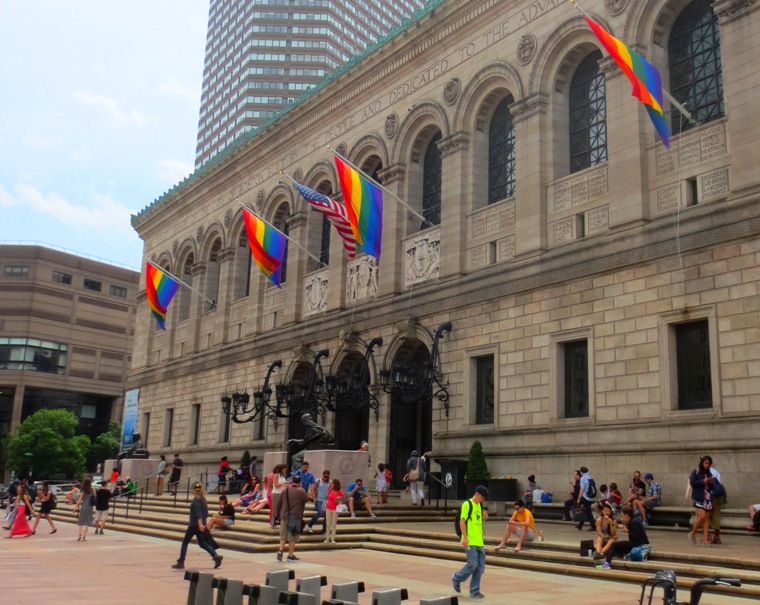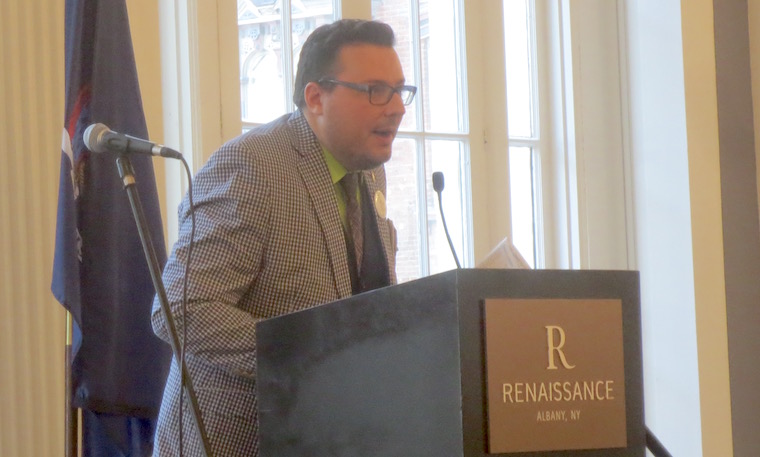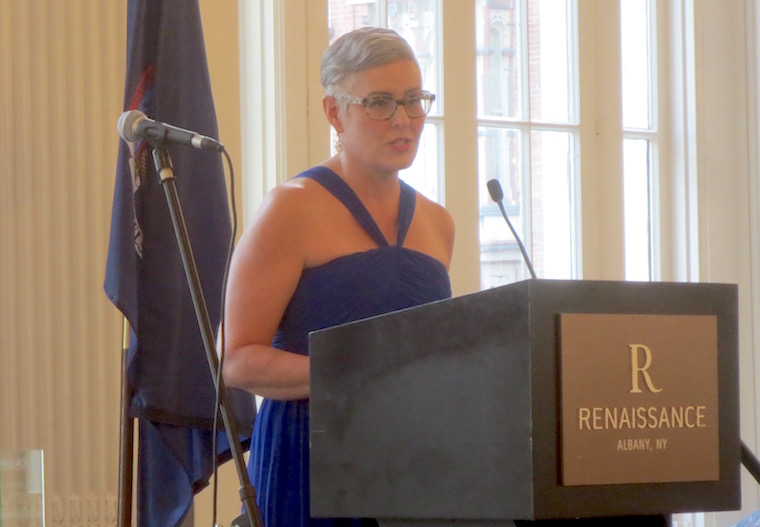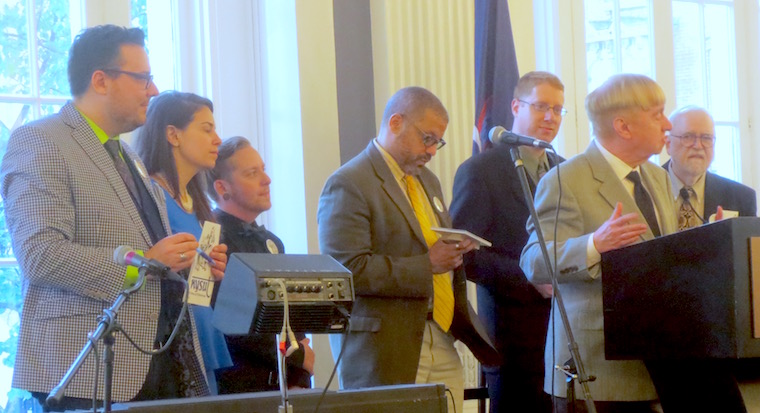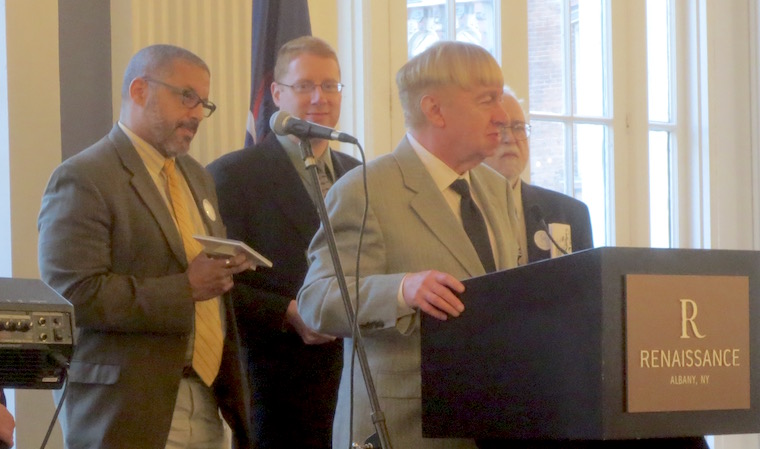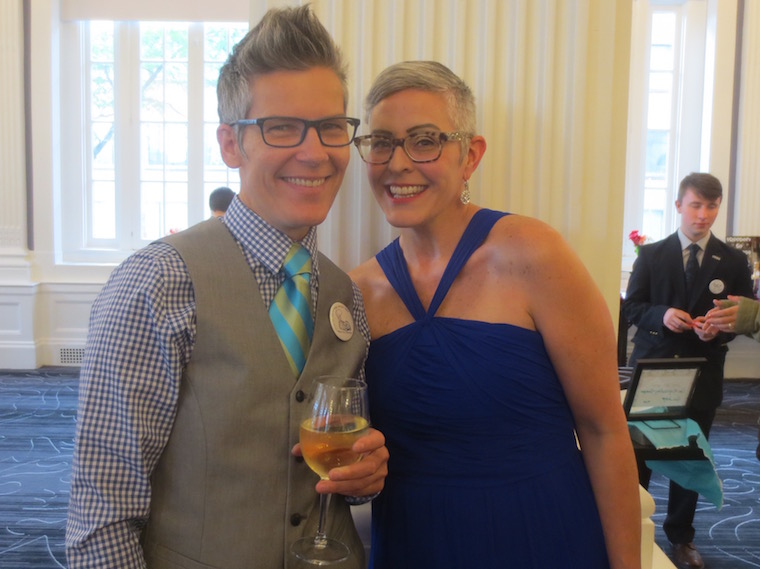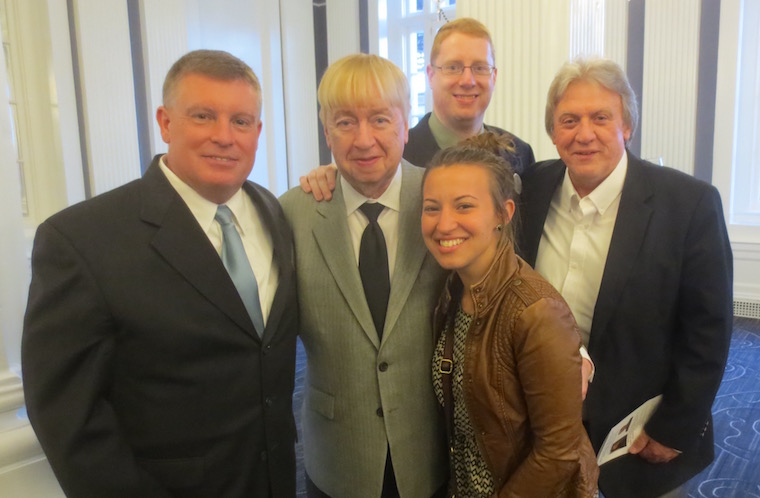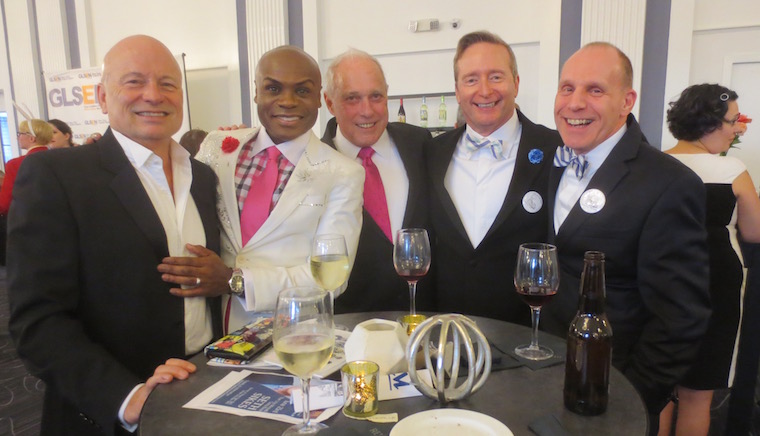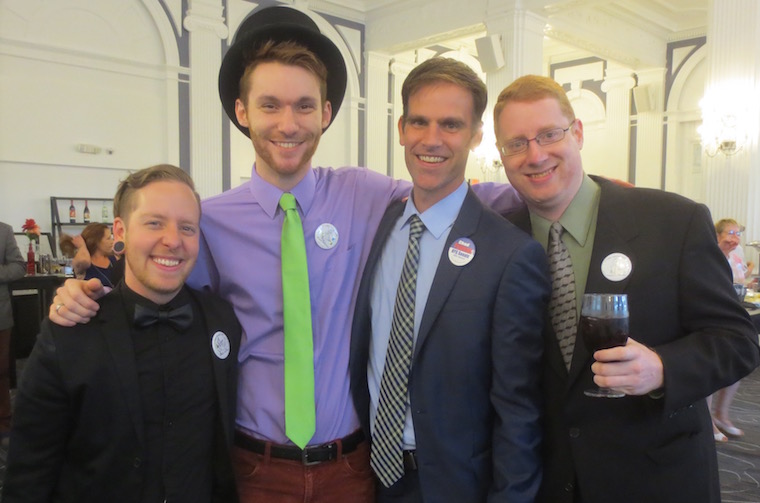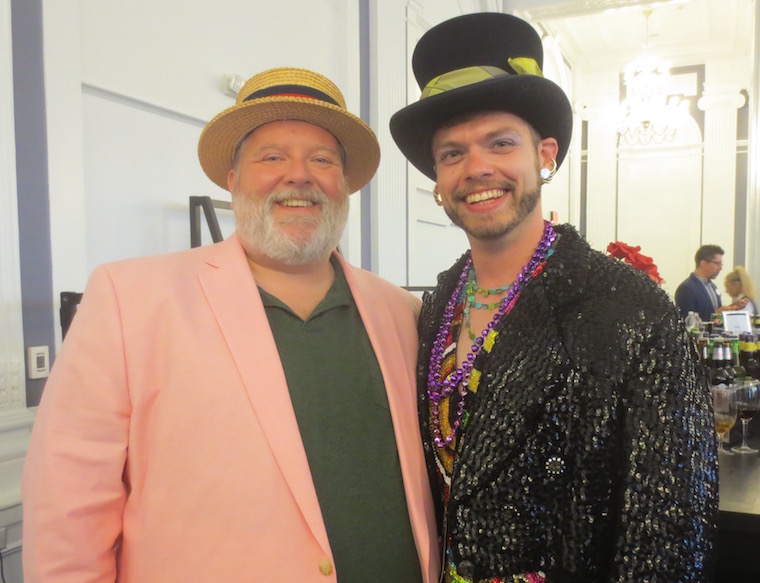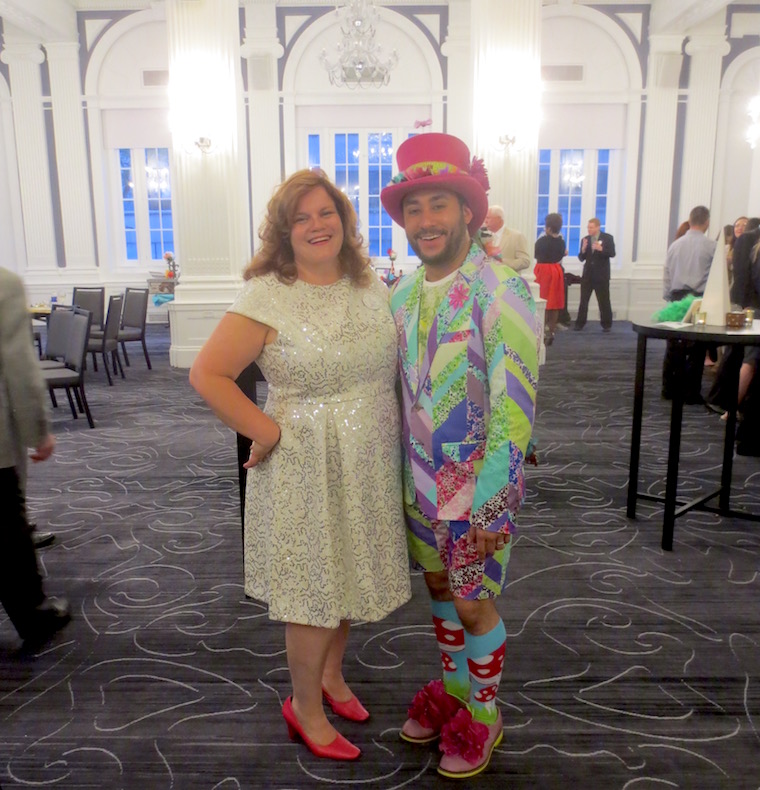Last year’s Tony Award for Best Musical went to ‘Fun Home’ and on our latest trip to Broadway we finally got around to seeing it. Well-worth the wait, and the accolades, this was one amazing work of art. Based on the graphic novel by Alison Bechdel, this is not your typical Broadway musical, but don’t let that deter you. I resisted for so long because I just didn’t see how a musical of a closet-case suicide could be enjoyable on any level. Then, when I realized that the ‘Fun Home’ of the title was a shortening of ‘funeral home’ I thought there was no way they could make this work. I was wrong.
Against all odds, ‘Fun Home’ finds the humanity and, indeed, the fun, in the troubled lives of those captured in the superficially idyllic, antique-laden environs of Maple Avenue. But to call this a feel-good musical is simply not possible. If it soars, it’s because it seers. If it flies, it’s because so many of the characters have their wings clipped. Yet somehow it remains defiantly buoyant. The very weighty themes, and the inevitable collapse and destruction of this happy home, conspire to weave a tapestry of the human condition and the evolving culture of gay acceptance – but that doesn’t mean the proceedings are ever without love. It’s just that sometimes the love is harder to detect and feel when you’re hiding from the truth.
That masked duality finds frenetic form in the father figure who is at the tragic heart of this story. In his Tony-winning turn as the closeted Dad whose daughter also turns out to be gay, Michael Cerveris conveys anguish, hope, and elation within minutes of each other, and it’s a performance that manages to be as sinister and menacing as it is morbid and soulless. Is he bitter, resentful, or secretly glad that his daughter would live in a better world than him? Is he secretly envious of the life she has an opportunity to lead? Or is he simply relieved that his children might have a chance of belonging and being true to themselves in ways that he could only ever imagine?
His daughter Alison, seen at three stages, and equally mesmerizing in each, is the narrator looking back at the events of her family’s life and trying to make sense of it all. This is her story even more than it is her Dad’s, and as she pieces together the events of her childhood, it is with both anguish and acceptance as she begins to see the ways in which he was trapped.
Most moving is the way that art and beauty are used as balms and ways to forge and find forgiveness. Adult Alison talks in captions, befitting her illustrator dreams, trying to contain and align the past, making sense of memories, yearning to understand through retrospective observation and mindful re-creation. Our memories are not always ours alone; the mind blunts some areas while sharpening others, and sometimes that skews the truth.
That there is indeed fun to be found in this funeral home is rather a miracle in itself, and like the best moments in many of our lives, this fun is tempered with terrible tragedy and the changing times of our cultural history, when being yourself meant salvation for a daughter and death for a father. The way their story unfolds is difficult to watch, particularly if you know what’s coming, but it’s also affirming in its own way. Rather than preaching its message of tolerance and acceptance, it merely shows the opposite end of a time and era before it seemed possible. There is an incredible power in that, and the current cast more than ably translates that power into thrilling musical theater.







